Must meet requirements when entering and must meet standards when exiting.
Dr. Nguyen Trung Nhan, Head of Training Department - Ho Chi Minh City University of Industry, said that the difference in graduation rates in 2023 and 2024 is due to different calculation methods. If in 2023, the school often simply calculated the number of graduates/student size of the course, from 2024, the calculation will be based on Circular 01/2024 on standards for higher education institutions. In this way, the rate of 40% of students graduating on time is considered to meet the standard. Schools that have not reached this level must make efforts to improve.
“The training program is usually 4 years, but in reality, after 4 years, very few students graduate, many have to spend a few more years. Don’t think that after 4 years of studying, you can graduate. Schools will have to tighten up, it will not be easy for students to graduate if they do not meet the standards. You have to meet the requirements when entering, but you have to meet the standards when leaving,” Mr. Nhan emphasized.
He added that at Ho Chi Minh City University of Industry, in the Economics department, 40-50% of students can graduate on time, but in the Technology - Engineering department, even 40% is a challenge, with some majors only achieving 20-30%. "The school cannot allow students who do not meet the standards to graduate," he said.
Of course, extending study time means increased costs and delayed entry into the labor market.

Mr. Pham Thai Son, Director of Admissions at Ho Chi Minh City University of Industry and Trade, also believes that universities cannot sacrifice quality for quantity. “Only when the training quality is high can students be attracted. To graduate on time, students must have a clear plan: what subjects to study, which semester, where to do internships, how to accumulate experience. If they fail a subject, they must reschedule their studies, even in the summer. If there is no plan, just one failed subject can delay the progress of the entire course,” Mr. Son analyzed.
The vicious cycle that undermines universities
Associate Professor Dr. Do Van Dung, former Principal of Ho Chi Minh City University of Technical Education, warned that students not graduating on time is creating a “vicious cycle” that is weakening higher education. The dropout rate and the length of study time are increasing, directly affecting enrollment targets and the quality of human resources.
According to Circular 01/2024 of the Ministry of Education and Training, the annual dropout rate of students must not exceed 10% (not exceeding 15% in the first year). But the reality is harsher: In 2024, the on-time graduation rate at many universities in Ho Chi Minh City was only 41.14%; the average for the period 2022-2024 was only over 30% (ie 3/10 students graduated on schedule, the rest delayed or dropped out).
The number of students who passed the entrance exam but dropped out of school is also increasing. In 2025, more than 147,000 students passed the entrance exam but did not enroll (19.1%), higher than in 2024 (122,000, equivalent to 18.13%). Main reasons: Choosing the wrong major (about 30%), financial pressure due to high tuition fees, and programs that are too heavy for the input capacity.
Mr. Dung analyzed that according to Circular 03/2022 of the Ministry of Education and Training, enrollment quotas depend on training capacity, the number of converted lecturers, and labor market demand. When the dropout rate is high, the actual training scale decreases, forcing schools to cut quotas for the following year, which means tuition revenue drops sharply (many schools lose 20-30%). To compensate, some schools "run for quotas" by massive enrollment, creating a negative loop.
The result is a decline in quality, graduates lack practical skills, and do not meet business needs. The ILO 2024 report shows that the youth unemployment rate in Vietnam remains high at 12.8%, mainly due to mismatched skills. In the third quarter of 2024 alone, more than 1 million workers were unemployed, of which new graduates accounted for a large proportion because they "did not study the right major, did not do the right job". In addition, schools that do not meet the standards according to Circular 01/2024 have lost prestige, making it difficult to attract quality candidates, causing thousands of billions of VND in training budget to be wasted due to dropping out midway.
Non-firefighting solutions
According to Mr. Do Van Dung, to move towards sustainable quality, it is impossible to reduce the program load or loosen the assessment (which can easily lead to “virtual degrees”). It is necessary to survey first-year students to adjust the program and increase personalized support. At the entrance stage, it is necessary to eliminate the consideration of academic records to choose the right quality.
For students, early career counseling and soft skills and technology (AI) learning are needed to increase motivation. At the ministerial level, targets need to be monitored more closely through software systems.
“This problem cannot be solved overnight, but if there is coordinated action from the Ministry to schools and students, we can reverse the trend,” Mr. Dung emphasized.
Source: https://vietnamnet.vn/sinh-vien-dung-nghi-hoc-xong-4-nam-la-duoc-ra-truong-2449011.html



![[Photo] General Secretary To Lam receives President of the Senate of the Czech Republic Milos Vystrcil](/_next/image?url=https%3A%2F%2Fvphoto.vietnam.vn%2Fthumb%2F1200x675%2Fvietnam%2Fresource%2FIMAGE%2F2025%2F11%2F21%2F1763723946294_ndo_br_1-8401-jpg.webp&w=3840&q=75)
![[Photo] President Luong Cuong receives Speaker of the Korean National Assembly Woo Won Shik](/_next/image?url=https%3A%2F%2Fvphoto.vietnam.vn%2Fthumb%2F1200x675%2Fvietnam%2Fresource%2FIMAGE%2F2025%2F11%2F21%2F1763720046458_ndo_br_1-jpg.webp&w=3840&q=75)
![[Photo] Visit Hung Yen to admire the "wooden masterpiece" pagoda in the heart of the Northern Delta](/_next/image?url=https%3A%2F%2Fvphoto.vietnam.vn%2Fthumb%2F1200x675%2Fvietnam%2Fresource%2FIMAGE%2F2025%2F11%2F21%2F1763716446000_a1-bnd-8471-1769-jpg.webp&w=3840&q=75)

![[Photo] National Assembly Chairman Tran Thanh Man holds talks with President of the Senate of the Czech Republic Milos Vystrcil](/_next/image?url=https%3A%2F%2Fvphoto.vietnam.vn%2Fthumb%2F1200x675%2Fvietnam%2Fresource%2FIMAGE%2F2025%2F11%2F21%2F1763715853195_ndo_br_bnd-6440-jpg.webp&w=3840&q=75)


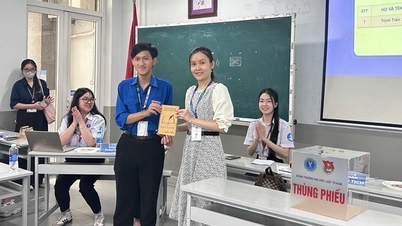



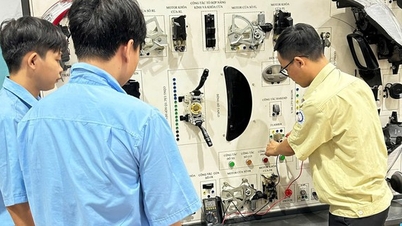




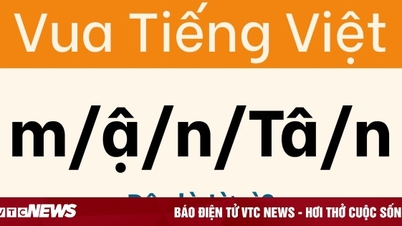





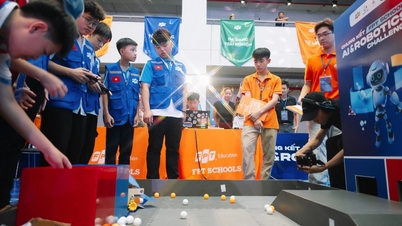







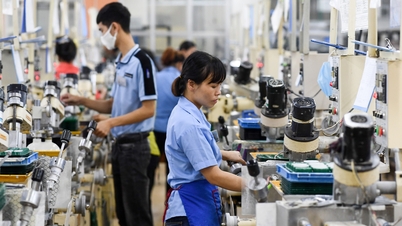































































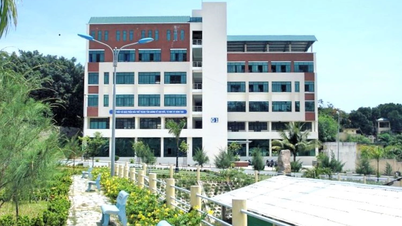














Comment (0)